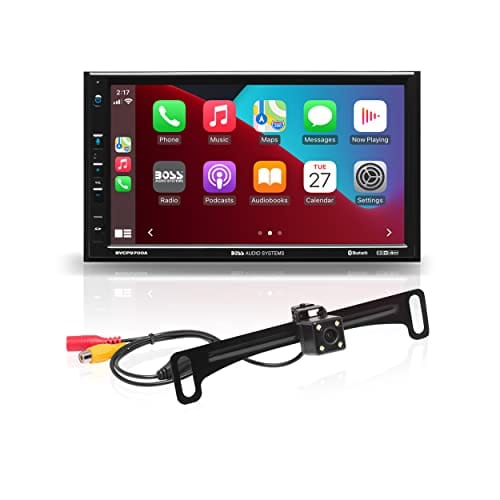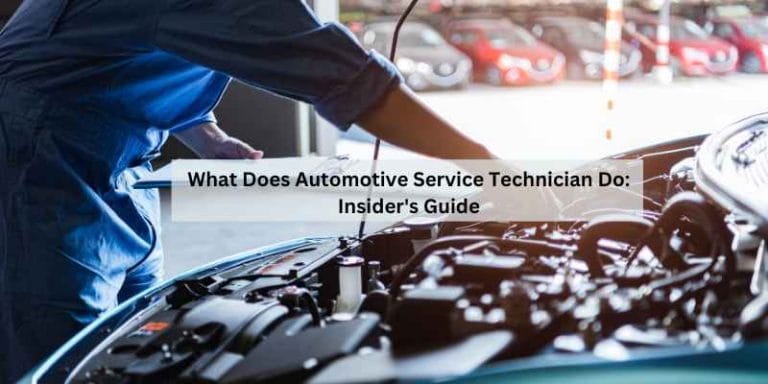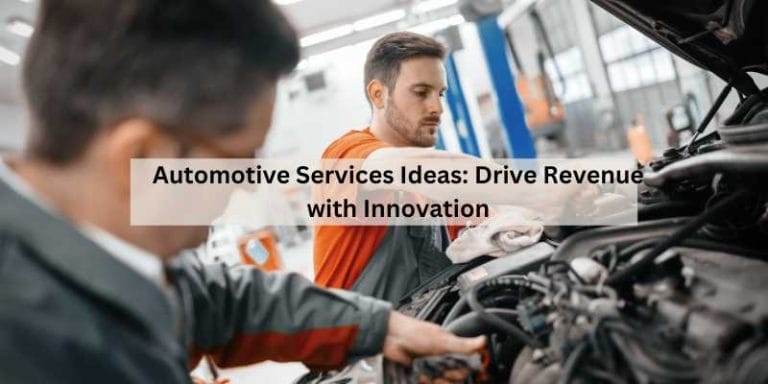How to Properly Service Your Car: Essential Tips
To properly service your car, make sure to regularly bring it in for a tune-up and replace consumable items such as motor oil, radiator coolant, brake fluid, power steering fluid, wiper blades, and brake pads. Additionally, wash your car frequently, change the oil and air filter, avoid bad driving habits, pay attention to your tires and maintenance lights, and use your parking brake.
It is also important to empty out your car before service to allow service providers to work efficiently. Proper mechanical maintenance, including replacing spark plugs, drive belts, timing belts or chains, and changing air and fluid filters, is necessary to keep the engine running smoothly.
Finding a reputable mechanic or repair shop in advance can provide protection against fraud and faulty repair work.
The Importance Of Regular Car Servicing
Regular car servicing is essential for maintaining the performance and longevity of your vehicle. It helps to prevent major issues and ensures safety on the road. Regular servicing also maintains the resale value of your car. Recommended service intervals vary based on mileage and manufacturer guidelines. Key benefits of maintaining your vehicle include improved fuel efficiency, reduced risk of breakdowns, and lower repair costs in the long run. It also ensures that your car remains compliant with warranty requirements. Proper mechanical maintenance such as replacing spark plugs, drive belts, and changing air and fluid filters is necessary to keep the engine running smoothly. Checking tire pressure, motor oil, and other important fluids, as well as testing the battery, are part of the routine maintenance checklist. It’s important to empty your car before service to allow the service providers to work efficiently and prevent any liability issues.
Getting Started With Basic Checks
When it comes to properly servicing your car, it’s essential to start with basic checks. Begin by inspecting the tires for any signs of wear and ensuring that they have the correct pressure. Additionally, check the fluid levels including the oil, coolant, brake fluid, and windshield washer fluid. It’s important to address any issues with these basic checks to ensure your car is running smoothly and to prevent any potential problems.
Changing Engine Oil And Filter
When changing engine oil and filter, it’s crucial to select the right oil for your car. Ensure the oil meets the manufacturer’s specifications for viscosity and performance. Follow this step-by-step guide to oil change to properly service your car. Start by gathering the necessary supplies and tools, such as a new oil filter, the appropriate engine oil, a wrench, and a drain pan. Then, warm up the engine, remove the drain plug, and drain the old oil. Next, replace the oil filter and dispose of the old oil responsibly. After that, add the new oil and check the oil level. Lastly, replace the air filter and inspect the car’s surface for any leaks. Regular car maintenance is essential to keep your vehicle running smoothly and efficiently. It includes tune-ups, oil changes, brake service, tire checks, and more. Proper maintenance can prolong the life of your car and prevent costly repairs.
Servicing Your Brakes
| Heading: | Servicing Your Brakes |
| Subheading: | Identifying Signs of Wear |
|
Regularly servicing your brakes is essential for ensuring the safety of your vehicle. Identifying signs of wear is the first step in servicing your brakes. If you hear a squealing or grinding noise when applying the brakes, it may be time to replace your brake pads. Other signs of wear include vibrations, a soft brake pedal, or the brake warning light appearing on your dashboard. Replacing brake pads and fluid is the next step in servicing your brakes. Brake pads should be replaced when they reach a thickness of 3mm or less. Additionally, brake fluid should be replaced every 2 years or as recommended by the manufacturer. It’s important to use the correct type of brake fluid specified for your vehicle. |
Maintaining Your Car’s Battery
One of the most important aspects of properly servicing your car is maintaining its battery. Cleaning the battery terminals is crucial for ensuring proper function and longevity of your car’s battery. Over time, corrosion can build up on the terminals and hinder the flow of electricity. To clean the terminals, disconnect the cables and use a wire brush or terminal cleaner to remove any buildup. It’s also important to regularly test the battery’s health to ensure it’s holding a charge and not in need of replacement. This can be done with a multimeter or by taking your car to a mechanic for a battery test.
Replacing Air Filters
Properly servicing your car includes replacing air filters regularly. This important maintenance task helps to ensure that your car’s engine is running efficiently and that clean air is circulating throughout the vehicle. By following the recommended guidelines for air filter replacement, you can help prolong the life of your car and improve its overall performance.
Replacing Air Filters:
A clean air filter is essential for the proper functioning of your car’s engine and cabin air systems. A dirty air filter can lead to reduced airflow, which can cause a decrease in engine performance and fuel efficiency. It can also lead to poor air quality inside the cabin. By regularly replacing your engine and cabin air filters, you can ensure that your car is running at its best and that you are breathing clean air while driving. It is recommended to change your engine air filter every 12,000 to 15,000 miles and your cabin air filter every 15,000 to 25,000 miles, depending on your driving conditions. Always consult your owner’s manual for the specific recommendations for your vehicle.
Checking And Replacing Belts And Hoses
Proper maintenance of your car is essential to keep it running smoothly. One crucial aspect of car servicing is checking and replacing belts and hoses. Identifying belt wear is crucial to prevent any potential problems that could arise if the belt snaps. Inspect the belt for any cracks, frays, or glazing. If there are any signs of wear, it is important to replace the belt immediately to avoid any damage to the engine. Hoses should also be inspected regularly for any signs of cracks or leaks. Replace any hoses that show signs of wear and tear to prevent any potential leaks. Regular inspection and replacement of belts and hoses can save you from costly repairs and keep your car running smoothly.
Tire Maintenance And Rotation
When it comes to tire maintenance and rotation, it is important to know when to rotate your tires. Checking for tire wear and damage is crucial to ensure the safety and performance of your vehicle. Regular tire rotation helps to promote even tire wear and extends the lifespan of your tires. It is recommended to rotate your tires every 6,000 to 8,000 miles or as specified by your vehicle manufacturer. Additionally, inspecting your tires for uneven wear patterns, low tread depth, and any signs of damage is essential for safe driving. By maintaining proper tire care, you can enhance your vehicle’s handling and fuel efficiency while ensuring a comfortable ride for you and your passengers.
Ensuring Proper Vehicle Lighting
Ensuring proper vehicle lighting is crucial for safe driving. When checking headlights and taillights, make sure they are clean and undamaged. Test them regularly to ensure they are functioning properly. If any bulbs need replacing, do so promptly to maintain optimal visibility on the road. Proper vehicle lighting not only enhances safety but also ensures compliance with regulations.
Final Steps And Safety Measures
When servicing your car, it is important to dispose of old parts and fluids properly. Performing a final inspection is crucial to ensure everything is in order. Check for any leaks and ensure all parts are securely in place. Additionally, make sure to dispose of old oil, filters, and any other parts according to local regulations. Once the final inspection is complete, you can feel confident in the safety and efficiency of your car. Always prioritize safety and proper disposal methods to protect the environment and those around you.
Frequently Asked Questions
What Regular Maintenance Should Be Done On A Car?
Regular car maintenance includes bringing your car for tune-ups and replacing consumable items such as motor oil, radiator coolant, brake fluid, power steering fluid, wiper blades, and brake pads. It is important to wash your car frequently, change the oil and air filter, pay attention to your tires and maintenance lights, and use your parking brake.
Emptying your car before a service is recommended to allow service providers to work efficiently. Proper mechanical maintenance, including replacing spark plugs, drive belts, timing belts or chains, and changing air and fluid filters, is necessary to keep the engine running smoothly.
How To Properly Take Care Of Your Car?
To properly take care of your car, follow these guidelines: 1. Wash your car regularly. 2. Change the oil and air filter as recommended. 3. Avoid bad driving habits. 4. Pay attention to your tires and maintain proper tire pressure. 5.
Stay alert to maintenance lights and address issues promptly. Remember, regular car maintenance is crucial for longevity and performance.
Should I Empty My Car Before A Service?
Yes, it is recommended to empty your car before a service. Cluttered cars can hinder the service provider’s ability to work efficiently and can also pose liability issues. Keeping your car empty allows the service provider to perform their work effectively and ensures a smooth service experience.
What Car Maintenance Is Really Necessary?
Proper mechanical maintenance is necessary for a car, including replacing spark plugs, drive belts, timing belts or chains, and changing air and fluid filters. This helps identify problems and keeps the engine running smoothly. Additionally, regular maintenance should include replacing consumable items like motor oil, radiator coolant, brake fluid, power steering fluid, wiper blades, and brake pads.
Taking care of your car by washing it frequently, changing the oil and air filter, paying attention to your tires and maintenance lights, and using the parking brake are also important.
Conclusion
Properly servicing your car is essential for maintaining its longevity and performance. By following the recommended maintenance schedule and regularly checking and replacing consumable items such as motor oil, air filters, and brake pads, you can ensure that your car runs smoothly and efficiently.
Additionally, paying attention to maintenance lights and practicing good driving habits can contribute to the overall health of your vehicle. Remember to wash your car frequently and use your parking brake to further protect your investment. Taking these steps will help your car last for many years to come.







